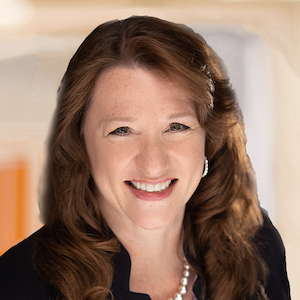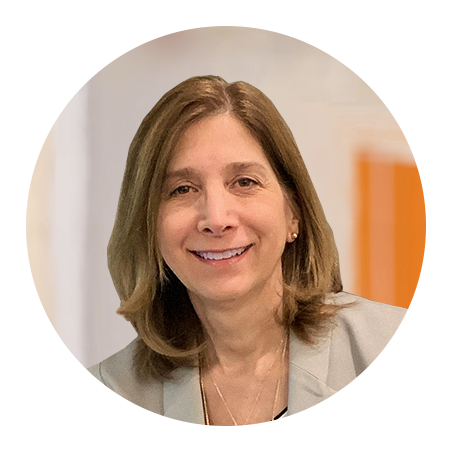The key to a smooth audit starts with a year-round approach to planning.
Taking stock at the end of a year is an important way for a nonprofit to track its successes and highlight opportunities for growth. An organization might track how many people it served or how many new volunteers it engaged. It might assess the impact of its annual event or a major program.
For the finance team, they will be focused on a particular set of numbers: closing the fiscal year books. For many nonprofits, this means preparing for the year-end audit.
Undergoing a financial statement audit may seem like a daunting task, but it does not need to be with proactive planning—and not just at audit time, but year-round.
To get you started, here are five helpful lessons for nonprofits to consider in the months leading up to an audit.
Establish a year-round approach to audit planning.
The smoothest audits occur when an organization has practices in place to capture the right information throughout the year.
A great place to start is by creating a central repository for all the documents you anticipate needing for the audit. We recommend maintaining a dedicated digital folder that includes items such as board minutes, financial reconciliations, invoices for significant purchases, and records of major organizational changes. This can include an updated lease agreement or a new revenue source.
Maintaining this folder is helpful when it comes time to meet with your auditor. When we meet with clients during a pre-audit meeting, we discuss key areas of focus and what changed from the prior year. This helps us build or update the “prepared by client” list. This is a comprehensive collection of documents and information that our staff will need as they begin the audit; ideally these documents will come straight from an organization’s central folder.
We tell our clients, an audit isn’t just a procedural task to report how you’re raising and spending funds, but an opportunity to showcase your organization’s financial story.
Together, we build the documentation list based on a clients’ specific circumstances. For example, let’s say a nonprofit started a new program during the fiscal year. We will help them identify all the items necessary to assess that risk in the audit, and all the corresponding documents needed, such as new grant agreements or new expenses.
By maintaining a process all year long, nonprofits can avoid the scramble to compile everything at the end of the year, reducing stress and potential errors.
Monitor and record any changes or unusual events.
In addition to regular documentation, it’s crucial for nonprofits to pay special attention to unusual or significant events that could impact their financial statements or operational structure. This includes situations like litigation, fraud, significant grants or donations, changes in revenue streams, or new financial obligations like leases, loans, or lines of credit.
These events should be carefully documented and flagged for the auditors during pre-audit meetings. By keeping track of these occurrences as they happen, nonprofits can ensure that their auditors are fully informed and can adequately assess the organization’s financial health and risk areas.
Set a realistic timeline and engage early on with your auditors.
An essential aspect of the audit process is establishing a clear and achievable timeline. This involves setting a final target date for the audit completion and taking into consideration the organization’s deadlines, such as board or committee meetings, internally set deadlines, annual events or reports, or government mandated deadlines such as the Form 990 or the data collection form for federal awards. If a nonprofit has a specific board meeting date or needs to meet certain grant reporting deadlines, these should also be factored into the audit planning process. By starting with the final deadline, the audit fieldwork and planning dates can be set to allow sufficient time for the audit fieldwork as well as the review process of the deliverables.
Ideally nonprofits should engage with their auditors at least three to four months before their fiscal year-end. This is especially important if the organization is going through a formal request for proposal (RFP) process to select an auditor, which can take around two months. By initiating conversations early, nonprofits can set clear expectations, align schedules, and ensure that they have the necessary support and resources ready when the audit begins.
Being adaptable and having a flexible plan in place can help nonprofits respond effectively to deadlines. This proactive approach will help in wrapping up the audit smoothly to allow time for the audit committee and board to review the drafts prior to the scheduled meetings.
Communicate with your auditing firm as a partner.
Collaboration between the nonprofit and the audit firm is crucial in tailoring the audit. This involves participating in pre-audit planning meetings where both parties can discuss the unique aspects of the nonprofit, any concerns, and the focus areas for the audit. This collaboration ensures that the audit is aligned with the nonprofit’s needs and expectations and helps in setting a realistic timeline and scope for the audit work.
Regular check-ins can help address any concerns promptly and adjust the focus of the audit if necessary. This ongoing dialogue ensures that the audit remains tailored to the nonprofit’s evolving needs and circumstances.
Take advantage of the opportunity to tell your organization’s financial story.
We tell our clients, an audit isn’t just a procedural task to report how you’re raising and spending funds, but an opportunity to showcase your organization’s financial story. Your financial statements and your Form 990 can be a public relations tool, showcasing your organization’s impact in its community. Updating the financial statements footnotes for the organization’s mission and changes to its program descriptions can be completed during the planning process.
Since Han Group specializes in nonprofits, we have deep expertise and experience when it comes to finding solutions to their unique challenges. There is no one-size-fits-all audit, and our commitment is to help your organization’s financial story shine brightly.
Reach out to Han Group for questions about our work, or submit an RFP.



